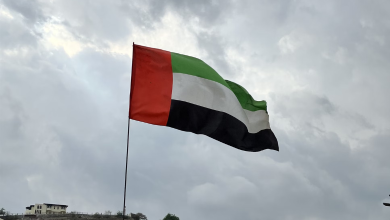Climate change necessitating greater support for The Bahamas

- Elevated Vulnerability To Climate-Related Disasters
- Hurricane Dorian Bringing Major Harm To Economy
- 'Responsibility Of International Community Should Not Be Forgotten'
Releasing a statement on Friday at the end of a 10-day visit to The Bahamas, Attiya Waris called on the international community to increase support for the country amid the climate emergency.
The UN Independent Expert on foreign debt, international financial obligations and human rights stressed the need for comprehensive planning to address The Bahamas’ climate vulnerability.
Additionally, she encouraged the Government to explore options to reduce the country’s heavy reliance on tourism, harness local innovation and enhance food security.
Elevated Vulnerability To Climate-Related Disasters
The Bahamas’ status as a high-income country was restricting its ability to secure support from international financial institutions and access development aid, Waris noted.
She urged both The Bahamas as well as the global community to adopt an alternative comparative indicator instead of using just the GDP per capita.
This suggestion stems from recognising that the country faces multiple different challenges, including elevated vulnerability to climate-related disasters and high living costs.
Hurricane Dorian Bringing Major Harm To Economy
Over the last ten years, people in The Bahamas have witnessed five major hurricanes, with Hurricane Dorian in 2019 being the most recent. It resulted in $3.4 billion in damages.
It’s considered one the most powerful storms to hit the country in modern history, leaving scores of people dead and triggering widespread devastation.
Dorian’s slow progress – just a mile an hour at times – concentrated the storm over the islands, substantially worsening the extent of the damage.
The death toll was staggering, with the miles of destruction bringing major harm to the economy as aerial images showed high water levels, overturned cars and scattered debris.
The impact of the extreme weather event, COVID-19 pandemic and the drop in tourism was devastating for the population, with the country still repaying the debt from reconstruction.
‘Responsibility Of International Community Should Not Be Forgotten’
Waris stressed the need for comprehensive, long-term economic planning that considers the impacts of the climate emergency as well.
“The collective responsibility of the international community … should not be forgotten,” she added. The suggestions will be presented to the UN Human Rights Council next year.
Also Read: Here is what to expect at Africa Climate Week 2023
UN independence experts are not UN staff and do not receive compensation for their work. They are appointed by the Human Rights Council to monitor specific situations.



